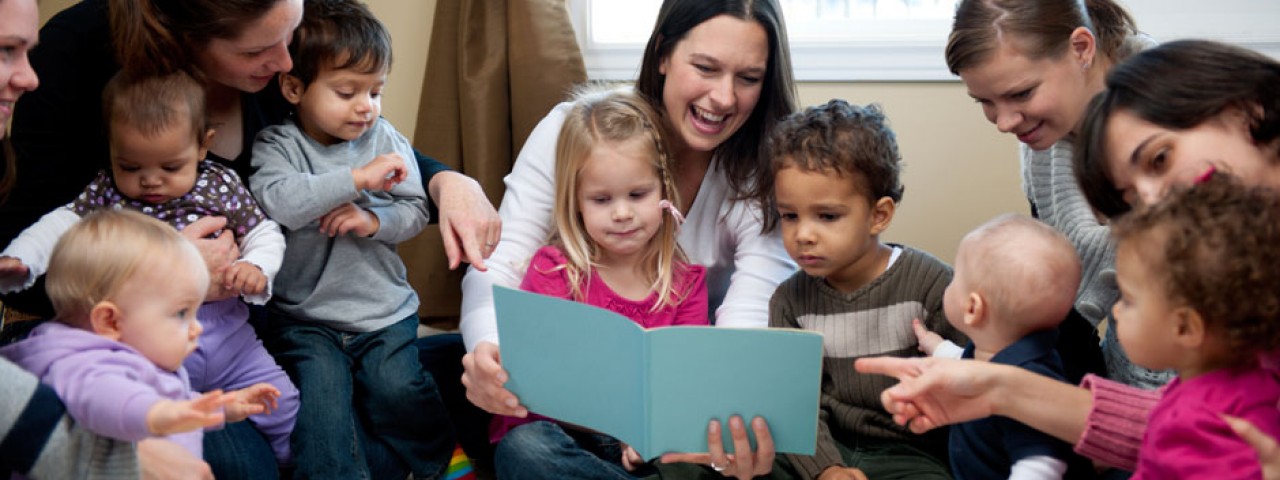Demographics Are Not Destiny: Relationships Matter for Early Childhood Brain Development
- Tweet

It should be a rallying cry in Memphis that we do not allow demographics to determine the destiny of our youngest children. Yet, too often, that’s exactly what happens, and the social and economic conditions into which children are born become the strongest predictors of their later success and well-being.
Children raised in poverty are not fated to fail in school and life! Tweet this!In the past, we have devoted this space to one aspect of demographics: growing up in poverty. We know that children who spend their first years in poverty have fewer opportunities to develop to their full potential. As a result, they are at greater risk for social, emotional and cognitive delays. This is an important issue across Shelby County, where more than half of all children are born into families struggling against poverty.
So then what would it mean to say that demographics are not destiny? As the slogan suggests, children raised in poverty are not fated to fail in school and life.
We see evidence of children beating the odds if we look at measures of school-readiness right here in Memphis. Across the country, low income children are less well prepared than middle-income children when they reach kindergarten. But as the data shows, in Memphis, close to a third of children from our poorest neighborhoods reach schools in far better shape than the district average. 3
This is extremely good news because kindergarten readiness is the foundation for early school success and early reading fluency and becomes the gateway to success through school.
Behind these success stories we’ll find a range of good news: parents who help to nurture their children’s natural curiosity and love of learning, grandparents and neighbors ready to lend a hand to help exhausted new parents, a church community providing a spiritual home, and a warm dinner, to a family just starting out, or perhaps a caring home visitor or a slot for a developing child in a high-quality early childhood care and education program.
All of these types of support can help to place a child on a pathway to optimal early childhood brain development, school readiness, and lead to success and well-being later in life.
The Other Half of the Story
Simply knowing that children grow up in poverty does little to help us understand the reality of their lives, families, neighborhoods and communities. More powerful than demographics, children’s early experiences and relationships make a world of difference. As our colleague Dr. Hank Herrod puts it, almost everything mothers do can affect their children’s development. Positive, deep, and enduring emotional bonds between a mother and a child lead to secure attachment, and are the basis for healthy early development and help to protect children from the risks associated with growing up in poverty. 1
The relationships between adults in a child’s life also matter for a child’s well-being. When adults enjoy the work of parenting together, they are better able to support their children’s early development. Children in families where parents have strong, supportive relationships are more likely to thrive. Conversely, when parents’ relationships are characterized by high levels of conflict, or even violence, children tend to have higher levels of anxiety, aggressive behaviors, and poor social skills.
Early relationships literally shape children’s capacity to learn by influencing brain development. On the one hand, positive early relationships in a child’s life lead to the development of sectors of the brain associated with emotional stability and learning. On the other hand, when young children grow up in an environment of fear and stress, they are at greater risk for a range of health problems as adults. 2
Communities that Support Parents are More Likely to Thrive
There are several organizations in our community established to help parents and other care providers for young children. These include Families Matter, The Family Safety Center, and the Relative Caregiver Program. These organizations are doing vital work to improve the condition of children, and are welcome supports for families doing their best to help their children succeed.
References:- Better Brains for Babies (2007). Attachment. Retrieved from: http://www.fcs.uga.edu/ext/bbb/attach.php
- Centers for Disease Control & Prevention (2010). Adverse Childhood Experiences (ACE) Study: Major findings. Retrieved from: http://www.cdc.gov/ace/findings.htm
- Sell, M., & Imig, D. (2011). Understanding the relationship between family income and school readiness in Memphis. Retrieved from: http://www.theurbanchildinstitute.org/sites/all/files/School%20Readiness2.18.final_.pdf
